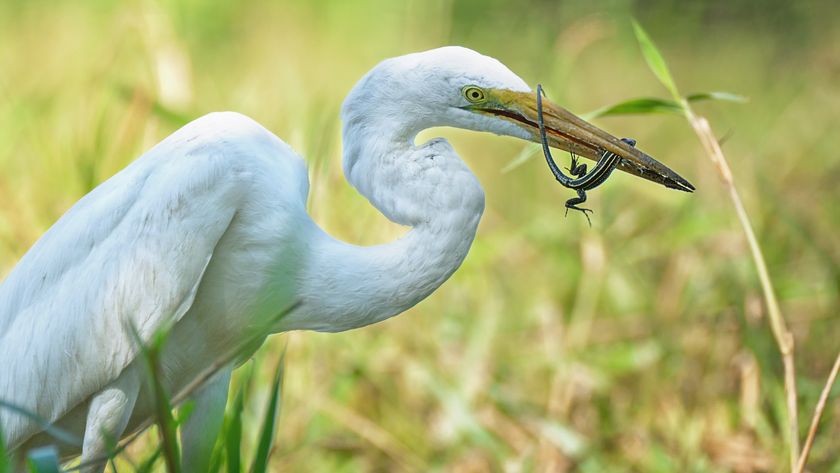Birds Relax in Tropics Like Humans

Humans aren’t the only creatures that kick back and relax in the tropics. Birds that live in tropical areas lead a more leisurely pace of life and use less energy than their cousins in colder climates, new research shows.
Researchers studying bird physiology traveled to Panama where they captured 69 species of tropical birds and measured their basal metabolic rate (BMR), which is the minimum amount of energy they expend at rest, used solely to maintain their bodily functions (such as breathing and heart rate).
They compared the BMRs of the tropical birds to those of 59 species of temperate birds, and found that the tropical birds used 18 percent less energy.
“We found that tropical birds have a slow pace of life which is reflected in how much energy they spend to stay alive,” said team member Joseph Williams of Ohio State University.
These findings, published online this week in the journal Proceedings of the National Academy of Sciences, correspond to other aspects of the birds’ lives, such as their longer life span and slower growth compared to birds living in temperate climates.
The study also tested the BMRs of birds that lived in the tropics for most of the year, but migrated north for the winter. These birds ranked somewhere in the middle, expending less energy than temperate birds, but more than those who lived in the tropics year-round.
“These birds have a tropical lifestyle, even though they come up north to breed,” said Williams. “And that tropical lifestyle is more consistent with a reduced metabolic rate.”
Sign up for the Live Science daily newsletter now
Get the world’s most fascinating discoveries delivered straight to your inbox.
Williams and his colleagues also measured the peak metabolic rate (PMR) of the birds and found that tropical birds have a PMR that is 34 percent lower than temperate birds, meaning their physiology is quite different.
“Tropical birds are unable to create as much heat as temperate species through shivering,” Williams said. “Their bodies are not built for that.”
- Video: Extraordinary Birds
- Images: Rare and Exotic Birds
- Amazing Animal Abilities












